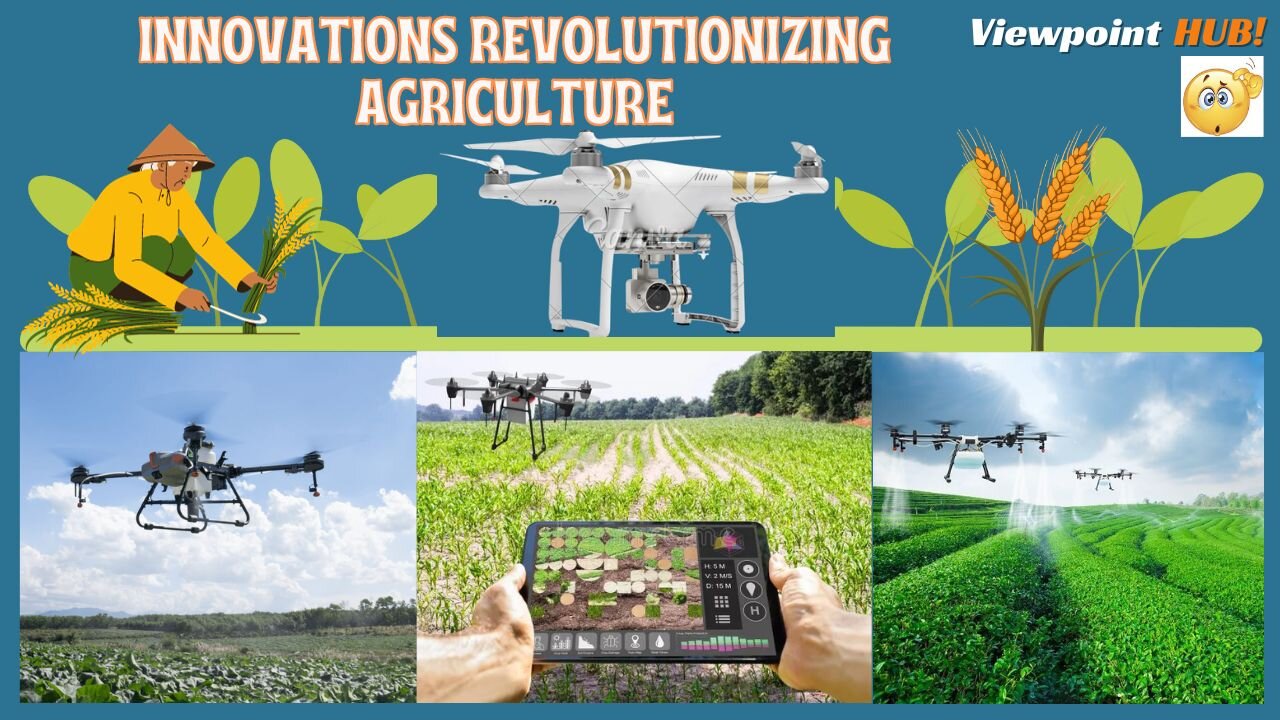Premium Only Content

Fields of the Future: Unveiling the Tech Revolution in Agriculture
Explore the cutting-edge frontier where technology and agriculture converge in our latest video, "Technology Innovations Revolutionizing Agriculture." Embark on a journey through the digital landscape that is reshaping the way we cultivate and harvest our crops. From precision farming and smart sensors to drone technology and AI-powered solutions, witness firsthand the transformative power of innovation in agriculture. Join us as we unravel the secrets behind increased efficiency, sustainable practices, and a brighter future for global food production. Stay informed, stay inspired, and join the revolution!
Technology has significantly impacted agriculture in various ways, leading to increased efficiency, productivity, and sustainability. Some of the key impacts of technology on agriculture include:
1. Increased Efficiency & Productivity: Technological advancements have enabled farmers to produce more food with less input, such as land, water, and labor. This has been achieved through the use of advanced machinery, improved seeds, and more efficient fertilizers
2. Precision Farming: The use of GPS, sensors, and data analytics has allowed farmers to employ precision farming techniques, which enable them to manage crops more accurately and efficiently
3. Improved Crop Health and Disease Resistance: Technologies such as biotechnology and genetic engineering have helped develop disease-resistant crops, improving crop health and reducing the need for chemical interventions
4. Irrigation and Water Management: Advanced irrigation systems and data-driven water management practices have improved water efficiency, ensuring optimal crop growth and reducing water waste
5. Automation and Robotics: The use of robots, drones, and automated machinery has reduced labor costs and increased efficiency in various aspects of agriculture, such as planting, harvesting, and monitoring crop health
6. Data Collection and Analysis: Technologies like sensors, satellite imagery, and data analytics have enabled farmers to make informed decisions about crop management, leading to better yields and reduced risks.
7. Connectivity and Digitalization: The agriculture industry has embraced digital technologies, such as artificial intelligence, analytics, and the Internet of Things (IoT), to improve efficiency, reduce costs, and build sustainability and resilience across crop cultivation and animal husbandry
Overall, technology has transformed agriculture, leading to higher productivity, reduced costs, and more sustainable practices. This has been particularly beneficial for farmers in developing countries, who can now adopt advanced technologies to improve their productivity and livelihoods.
-
 LIVE
LIVE
Dr Disrespect
7 hours ago🔴LIVE - DR DISRESPECT - ARC RAIDERS - AGAINST ALL DANGER
1,604 watching -
 LIVE
LIVE
LadyDesireeMusic
54 minutes agoYour Daily White Pill- Music & Convo
98 watching -
 LIVE
LIVE
StoneMountain64
4 hours agoBattlefield REDSEC UNSTOPPABLE WIN Squad
43 watching -
 1:40:36
1:40:36
The Quartering
4 hours agoKimmel Pulls Show Mysteriously, Youtube Collapse? & Much MOre
85.3K56 -
 LIVE
LIVE
cosmicvandenim
4 hours agoCOSMIC VAN DENIM | OFF CHARACTER | WARZONE PRACTICE
47 watching -
 2:08:06
2:08:06
The Robert Scott Bell Show
4 hours agoMike Adams, Brian Hooker, Live From Brighteon Studios in Austin Texas, Kids Triple Vaccinated, Blood Sugar and Autism, Candy Fed to Cows, Nutrition Reform - The RSB Show 11-7-25
20.4K1 -
 LIVE
LIVE
GritsGG
3 hours ago#1 Most Warzone Wins 3943+!
20 watching -
 1:15:58
1:15:58
DeVory Darkins
5 hours agoLIVE NOW: Democrats SABOTAGE GOP effort to reopen Government
99.9K54 -
 1:21:21
1:21:21
Tucker Carlson
4 hours agoThe Global War on Christianity Just Got a Whole Lot Worse, and Ted Cruz Doesn’t Care
52.9K248 -
 10:50
10:50
Dr. Nick Zyrowski
2 days agoDoctors Got It Wrong! This LOWERS CORTISOL In Minutes!
20K4